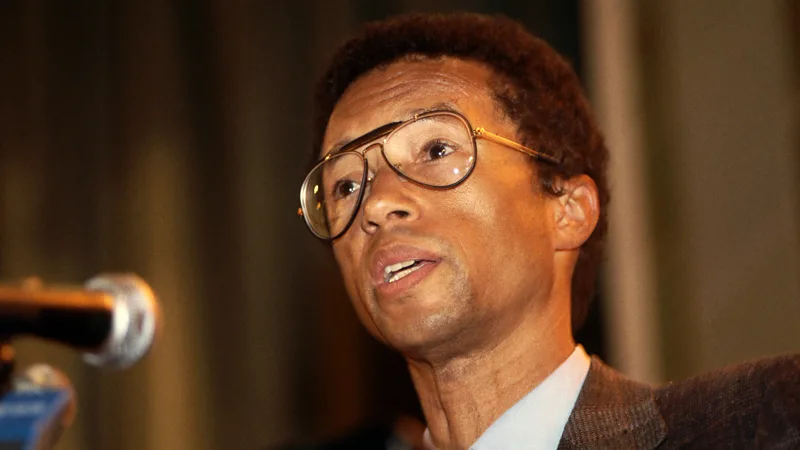Entertainment
Charles M Schulz drew his beloved Peanuts strip for 50 years until his announcement on 14 December 1999 that ill health was forcing him to retire. In History looks at how an unassuming cartoonist built a billion-dollar empire out of the lives of a group of children, a dog and a bird. Charles M Schulz’s timeless creation Charlie Brown may have been as popular as any character in all of literature, but the cartoonist was modest about the scope of his miniature parables. In a 1977 BBC interview, he said: “I’m talking only about the minor everyday problems in life. Leo Tolstoy dealt with the major problems of the world. I’m only dealing with why we all have the feeling that people don’t like us.” This did not mean that he felt as if he was dealing with trivial matters. He said: “I’m always very much offended when someone asks me, ‘Do I ever do satire on the social condition?’ Well, I do it almost every day. And they say, ‘Well, do you ever do political things?’ I say, ‘I do things which are more important than politics. I’m dealing with love and hate and mistrust and fear and insecurity.'”

In 1988, World Aids Day began with the aim of raising awareness and understanding of a disease that had struck fear in communities around the globe. That same year, US tennis legend Arthur Ashe learned of his own diagnosis. In History looks at the dilemma that faced Ashe, when, after years of secrecy, he once again became a groundbreaking campaigner.
In April 1992, Arthur Ashe made his way into a packed conference room, where the media were poised with cameras rolling. This time he wasn’t being asked about his role as the first black tennis player to be selected for the United States Davis Cup team, or about his pioneering victories at Wimbledon, the US Open or the Australian Open. He had cemented his name in history as the first black winner of a major men’s singles championship, but after a heart attack that led to multiple surgeries, he had retired from the sport 12 years earlier, at the age of 36.
His intelligence, composure and sportsmanship had made him a popular figure, on and off the court. But the press had heard rumours about his health, at a time when the world was still full of fear of an incurable epidemic. USA Today sports journalist Doug Smith, a childhood friend, confronted Ashe about a tip-off he had received. The next day, keen to control his own story and beat the press, Ashe reluctantly told the world the secret that he and his inner circle had kept since 1988: he had Aids.
Entertainment
Artists imagine a new utopia for Kenya’s capital

Kenya’s capital, Nairobi, has long been known as “the green city in the sun” because of its mix of forest and grasslands among the urban sprawl, but it all depends on where you are viewing it from.
Seen from one of the city’s comfortable apartment blocks or homes, then yes, perhaps – from one of its densely packed slums, then no.
There, life can be characterised by poverty and ecological disaster, such as flooding and deadly landslides.
But an art collective – Kairos Futura – has been trying to take what might seem like some of the city’s more dystopian elements and create a vision of a utopia, or at least how that might be achieved.
Their exhibition Hakuna Utopia features the works of seven artists exploring themes of apocalypse and resilience – some in quite abstract ways – as they respond to the daily challenges endured by Nairobi’s six million residents.
Entertainment
Queer to Baby Reindeer: How LGBTQ stories got real in 2024

From Queer to Baby Reindeer and Will & Harper, LGBTQ representation took a step forward as film and TV showed more varied and authentic characters than ever before.
Luca Guadagnino’s latest film, Queer, takes us to the dream-like streets of 1950s Mexico City, where we meet Lee (Daniel Craig) – a US expat who spends most of his time downing tequila shots, smoking, and (mostly unsuccessfully) pursuing young men. As Lee self-medicates with alcohol and opiates, he becomes infatuated with Allerton (Drew Starkey), a handsome former US navy serviceman who he meets by chance. The pair soon start a relationship where, for the first time, Lee experiences sex that feels reciprocal, with emotional strings attached. But Allerton soon becomes distant. As a confused
Entertainment
AI is trained to spot warning signs in blood tests

This is the third feature in a six-part series that is looking at how AI is changing medical research and treatments.
Ovarian cancer is “rare, underfunded, and deadly”, says Audra Moran, head of the Ovarian Cancer Research Alliance (Ocra), a global charity based in New York.
Like all cancers, the earlier it is detected the better.
Most ovarian cancer starts in the fallopian tubes, so by the time it gets to the ovaries, it may have already spread elsewhere too.
“Five years prior to ever having a symptom is when you might have to detect ovarian cancer, to affect mortality,” says Ms Moran.
But new blood tests are emerging that use the power of artificial intelligence (AI) to spot signs of the cancer in its very early stages.
And it’s not just cancer, AI can also speed up other blood tests for potentially deadly infections like pneumonia.
-

 Entertainment4 months ago
Entertainment4 months agoEarthquake scientists are learning warning signs of ‘The Big One.’ When should they tell the public?
-

 International4 months ago
International4 months agoTarar accuses Imran Khan of conspiring with Faiz Hameed to destabilise Pakistan
-

 International2 months ago
International2 months agoPTI Announces Not to Boycott New Committees
-

 Business3 months ago
Business3 months agoMajor Corruption Scandal Uncovered at WASA Multan: Rs1.5 Billion Embezzlement Exposed
-

 Business4 months ago
Business4 months agoThe Impact of QR Codes on Traditional Advertising
-

 Business4 months ago
Business4 months agoThe Benefits and Problems of International Trade in the Context of Global Crisis
-

 Business4 months ago
Business4 months agoFraud by Pakistani Firm Sparks Outrage in Business Community; Concerns Rise Over International Investment
-

 Business2 months ago
Business2 months agoHigh Court Blocks MDCAT Merit List Amid Controversy Over Exam Error






